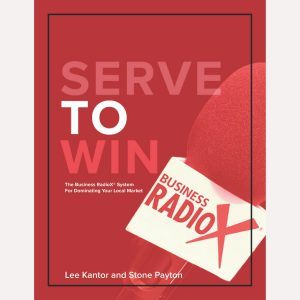
Stone Payton: [00:00:02] And we are back with BRX Pro Tips. Lee Kantor and Stone Payton here with you, Lee, it’s the heart of our process. This is what I think puts us in a position to genuinely serve our clients. How do we help a new client design the right show concept?
Lee Kantor: [00:00:22] This is one of the finest part of the job because this is where the potential client comes in and, invariably, they want to do a show about whatever they do. If they’re an accountant, they want to do the accounting show. If they’re an insurance person, they want to do the insurance show. One of the first things that we like to tell them is the great idea, let’s hold that idea over here to the side, but let’s dig into who your best client is. Let’s try to understand and really kind of articulate the ideal client you’d like to clone. Who is the person you want more of? What client would you like to have over and over again?
Lee Kantor: [00:01:00] When you have conversations about that, you can move the sponsor into thinking, “You know what, it is better if I focus in on my best client or my best prospect because if I had more of those, that would move the needle in my business. It is less important for me to show how smart I am about whatever topic I have. I have plenty of time to do that, but what I don’t have and most of them don’t have is a machine that brings the right prospect in front of them in a predictable, reliable manner,” which when you host a show about the specific niche, about a specific group of people, that does that. It becomes a machine. And then, now, they have a tool they can use to go out to the marketplace and request more of these type people because your company is sponsoring a show that is putting the spotlight and celebrating the work of this individual person, this type of person.
Stone Payton: [00:01:53] So, everything you’re saying is right, of course. But I think one of the things that we do to serve people particularly well in this regard is the process of landing on that right show concept. It really does need to be a process of mutual discovery, a co-authored show concept that they really embrace and buy into. And I think you do that particularly well. But I think just going into it with the mindset of co-creating a show to deliver desired outcomes is so much more powerful than “Sit down, shut up, give me your milk money, and let me teach you how to do this.”














